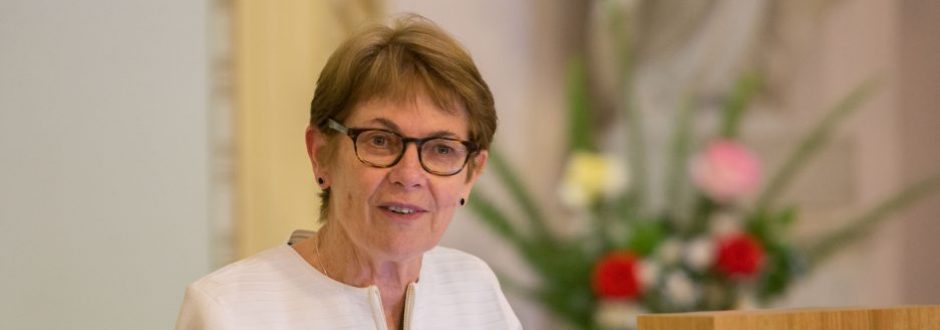Christmas is the feast for the fatigued and the frayed, writes Patty Fawkner, because God is with us in the actual reality, not the fairy tale version, of our lives.
By Patty Fawkner SGS
Only once have I enjoyed a northern hemisphere Christmas. There was something magical about lights gleaming off the snow, and Christmas songs describing wintry manger scenes made sense. Christmas didn’t coincide with the end of the academic year, and this too contributed to a slower more reflective season of Advent.
Here in the southern hemisphere, or in Australia at least, added pressures during the Christmas season seem inbuilt, perhaps symbolised by the Top End’s ‘build up’, the ever increasing uncomfortable pre-monsoonal season.
As the weather gets warmer we get busier, and the thought of gearing up for another Christmas seems more daunting than ever. Everywhere I look I see people who are fatigued and frayed by experience of drought, bush-fires, swotting for exams, the relentless balancing act of home and work, simply getting along with each other, or coping with the ordinary stresses of everyday life on top of which we have the countless rounds of end of year celebrations.
It occurs to me that there is something ‘right’ about our southern hemisphere experience because Christmas is the feast for the frayed and fatigued.
It was so from the beginning. Surely Mary and Joseph’s arduous journey to Bethlehem with Mary at full-term, their frantic search for accommodation and their pending refugee status, belies the romanticism that so often couches the re-telling of the Christmas narrative.
North, South, East or West: the core Christmas message endures. This tiny baby is Emmanuel, a name which means ‘God is with us’. God is with us in the actual reality, not the fairy tale version, of our lives. In Jesus, the human and the divine become one in a unique way. Jesus becomes fully human – not pretend human – not just taking on human flesh, but becoming human flesh.
Inevitably, Jesus experienced fatigue and fragility because they are intrinsic to our humanity. He experienced the full range of human emotions: of joy and delight, of neediness, frustration, disappointment, stress and misunderstanding – all those emotions that may get heightened around Christmas.
Christmas celebrates Jesus as God’s gift to the world. His becoming one of us is the climax of God’s self-communicating love, first revealed in Creation and now in Incarnation. He becomes one of us and is with us in all the joys and anxieties of our lives.
Karl Rahner, the giant of twentieth-century theology, helps me better understand the meaning of the feast of Christmas and my human experience of Christmas. “Theology,” Rahner says, “is eternally anthropology”. Any understanding of who God is tells us who we are; any understanding of what it means to be human helps me understand who God is. Our human experience in all its dimensions is the locus of the divine. “The human person is the question to which God is the answer.” God is the answer to our human neediness, our desire, our sense of incompleteness, our search for meaning. Christmas invites us to celebrate God’s presence in all the demands of life.
Christmas reminds us that we are never alone. “Christ is travelling with us”, says spiritual writer, Ronald Rolheiser. “In Jesus, God has made Godself neighbour to humanity.” From the perspective of my religious congregation, I say that in Jesus, God becomes Good Samaritan to humanity, binding up our wounds with the wine of God’s mercy and the oil of God’s compassion.
Christmas is a celebration of love. We are so wonderfully loved that God longs never to be separated from us, no matter what our emotional or spiritual state. God gives, and continues to give Godself in love.
My spiritual director recently shared an insight with me. “God is not the object of my loving; God is the subject of my experience of love,” he said. Think about that. Wherever there is love, there is God. Wherever there is no love, we experience the thirst and hunger for God.
As I approach Christmas, I acknowledge my tiredness and my sense of incompleteness. I acknowledge the evil, sin and pain in our world. Christmas doesn’t abolish any of this; however, it does give us reason for hope and reason for joy.
Rahner says God’s message to us is the source of our joy and our hope:
I am here. I am with you.
I am your life.
I am your time.
My love is unconquerable.
I am here.
It is Christmas.
Light the Candles!
They have more right to exist
than all the darkness.
It is Christmas –
Christmas that lasts forever.
It is Christmas. Fatigued and frayed you may feel, but all the more reason to light the candles!
